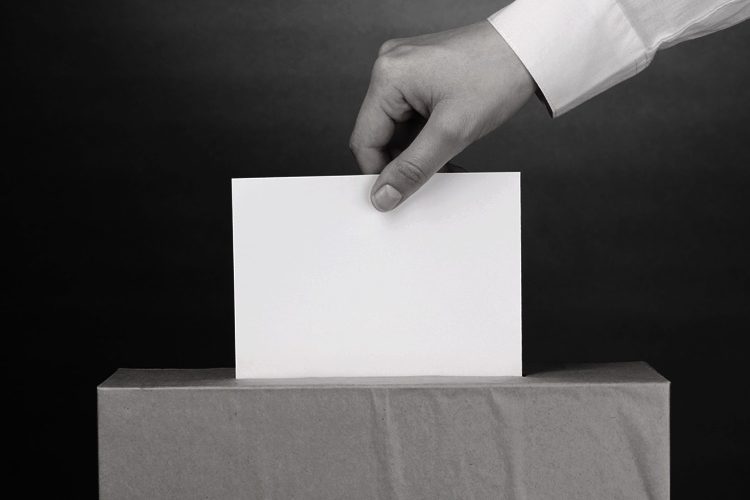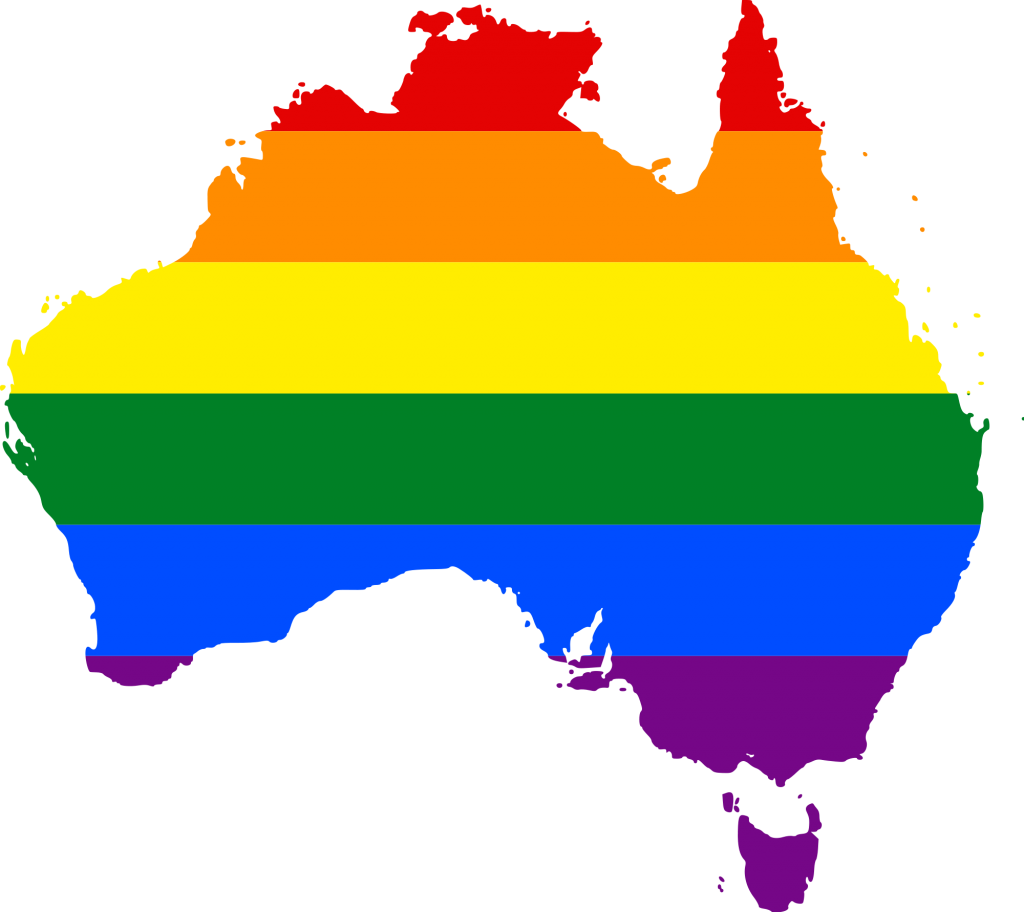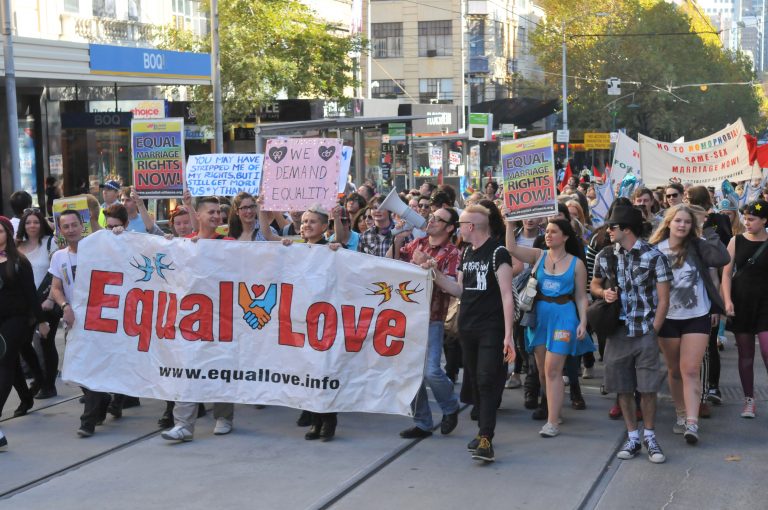Glen Wolter reflects on Wednesday’s result in the Australian marriage law postal survey, and the painfully long two months preceding it.

Wednesday morning, at a few minutes past ten, the Australian Statistician announced, during a rather peculiar televised press conference, that nearly 62 percent of participants in a nationwide postal survey – on whether Australian law should be changed to allow same-sex marriage – had responded “yes”. Not an overwhelming majority, perhaps. But, if our Prime Minister is to be believed, it should be enough to ensure that marriage equality becomes a reality in Australia before Christmas. A very welcome, and long overdue, outcome.
With that said, I should never really have had to huddle nervously around a television yesterday to watch one of Australia’s least charismatic public servants make that announcement. The following thoughts, which I scribbled down in the tense moments before the result became known, explain why this is so…When my school community, and then my family, found out that I was gay – well before I would have chosen to have them know – I wasn’t even really ready to accept that I was gay myself.When, about 18 months later, the then Howard government changed the Marriage Act to specifically exclude same-sex unions, the shame and embarrassment that I was already feeling about my sexuality was amplified.
“Within days of the survey being announced, and for the first time in several years, a passer-by shouted “faggot” at me because I had the audacity to stand homosexually on the footpath.”
It was not the loss of the possibility of marriage that did it. I had never really considered having a union, let alone a same-sex one. It was the fact that the government had taken its decision because it thought or knew that it had popular support. Both within the parliament – on both sides of the political divide – and within the community.
Just like the bullying in the classroom and playground, it told me that, in both the public and private sphere, I should feel ashamed of something about myself that I didn’t want and couldn’t change.
Since then, I have become much prouder of who I am. I have come to realise that, to whatever extent my sexuality is looked down on, the problem lies with the people doing the looking. And I wouldn’t have ever come to feel that way if it hadn’t been for the special and important people around me, both gay and straight.
But in the last few weeks my pride has wavered. This mean-spirited survey was designed to dredge up in LGBT people of my generation and older the feelings of shame and self-loathing that they thought they had left behind; and to inflict those feelings on the next generation of vulnerable LGBT people who might already have been struggling to come to terms with who they are.

I ultimately responded “yes” in the survey. To show support to my gay friends and family, and to ensure that I wasn’t neutralizing the “yes” of someone who had wanted to show their support to me.
But I very nearly didn’t respond at all. And if I hadn’t, it wouldn’t have been a boycott. A boycott requires the person protesting to want his or her behaviour to change the mind of the person at whom it is directed. And that wouldn’t have been my intention. Frankly, it is not up to me to convince
the government that I deserve equality under the law; and even if the members of the government think that I don’t, they are obliged to provide it anyway.
A huge lacuna where legislation for equality should have been would have, in my opinion, been infinitely better than this survey.
“What I will never accept is the government’s new position: the same stubborn refusal dressed up as an exercise in progress and democracy.”
Within days of the survey being announced, and for the first time in several years, a passer-by shouted “faggot” at me because I had the audacity to stand homosexually on the footpath. (He shouted from inside a car, of course, where he was protected by anonymity and his ability to rapidly flee the scene.)
A few days later, a skywriter drew the words “vote no” in the sky over Sydney.

Then signs letting my neighbours know that they “can say no” started appearing in my neighbourhood.
And this was all inside the Sydney bubble.
Since the Howard government made its changes to the Marriage Act, the government’s position has been to outwardly refuse equality under the law to me and my community. Fine. That is something that I begrudgingly accepted as a gay teenager.
But what I will never accept is the government’s new position: the same stubborn refusal dressed up as an exercise in progress and democracy. If there is one thing my community can spot from a mile away, it is bad drag.
Now, this illegitimate survey and this government can sashay the fuck away.
Main photo: Mikeybear.
Note: The opinions and values expressed by authors and forum participants on GayIceland do not necessarily reflect the opinions and values of GayIceland.


